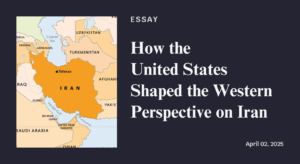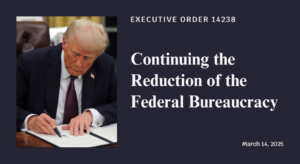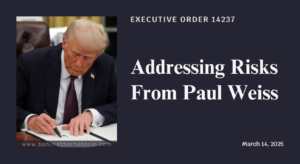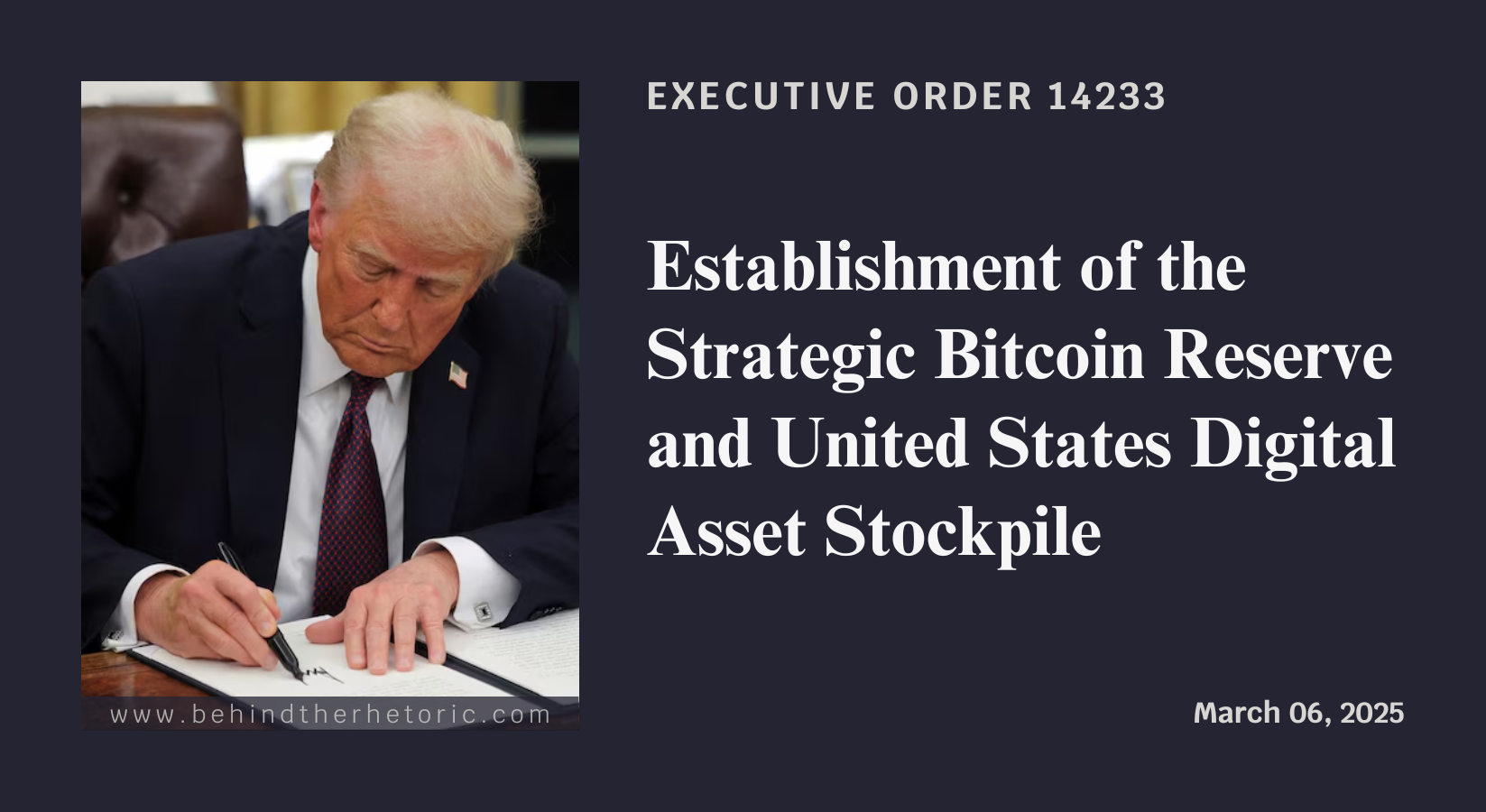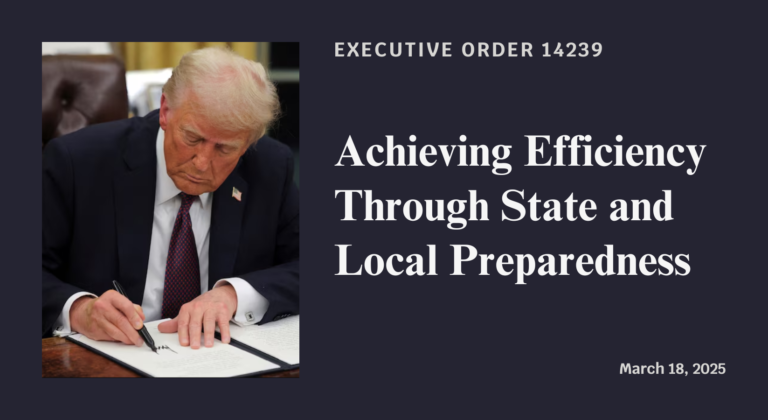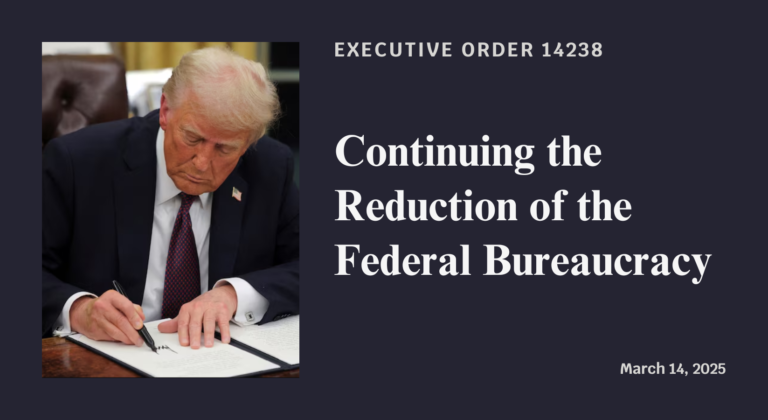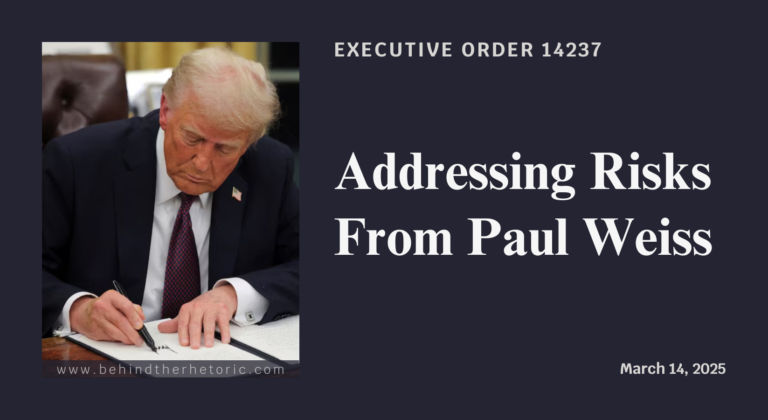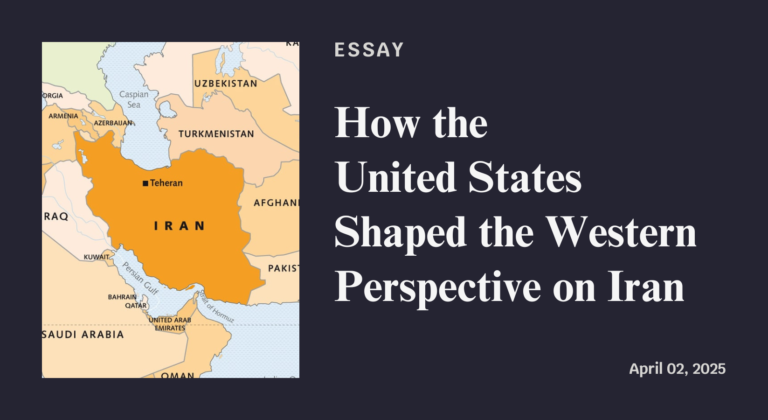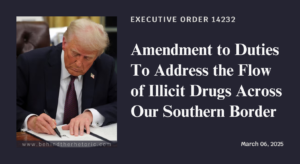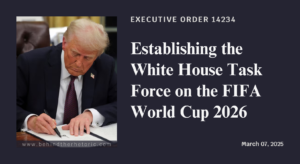Executive Order 14233
Establishment of the Strategic Bitcoin Reserve and United States Digital Asset Stockpile
Signed on March 06, 2025
On March 6, 2025, President Trump signed Executive Order 14233, which establishes a Strategic Bitcoin Reserve and a United States Digital Asset Stockpile to consolidate the federal government’s holdings of Bitcoin and other digital assets acquired through forfeiture proceedings. The order directs federal agencies to transfer their Bitcoin holdings to the Department of the Treasury and prohibits the sale of these assets. It also mandates the development of strategies to acquire additional Bitcoin while maintaining a budget-neutral approach.
🔗 Read the Executive Order on the Federal Register
🔗 Read the White House Announcement
What You Should Know
This order prioritizes Bitcoin as a national reserve asset.
The executive order explicitly treats Bitcoin as a strategic asset, likening it to gold, and mandates the creation of a reserve that will not be sold. This is a significant policy shift from previous administrations, which auctioned off Bitcoin seized from criminal activities. The order prevents Bitcoin from being liquidated to return funds to victims of financial crimes and forfeiture cases, locking up potentially billions of dollars in digital assets that could otherwise be used for restitution or public interest initiatives.
The government will seek to acquire more Bitcoin—but without direct taxpayer funding.
The order directs the Treasury and Commerce departments to develop strategies for increasing Bitcoin reserves without imposing new costs on taxpayers. However, it does not clarify what mechanisms will be used to accomplish this. Possible methods include accepting Bitcoin for government services, partnerships with private entities, or using future asset seizures. Without transparency, this provision could lead to unregulated financial maneuvers with significant risks.
Other digital assets will be held but may be liquidated.
The creation of the United States Digital Asset Stockpile consolidates non-Bitcoin cryptocurrency holdings seized through forfeiture cases. Unlike Bitcoin, these assets are not protected from liquidation, meaning they could be sold off at the government’s discretion. This signals a preference for Bitcoin over other cryptocurrencies, reinforcing its dominance while potentially devaluing alternative digital assets.
The lack of a clear regulatory framework raises concerns about oversight and security.
The order centralizes control of government-held digital assets within the Treasury Department without establishing clear oversight mechanisms. Unlike gold reserves, which are regulated by financial and economic policies, Bitcoin and other cryptocurrencies are highly volatile and subject to cybersecurity threats. Without robust security measures, the reserve could become a target for hacking attempts or mismanagement.
The order does not outline protections for crime victims who may be entitled to seized digital assets.
Seized digital assets are often used to compensate victims of fraud and financial crimes, but this order limits how Bitcoin can be used, restricting it from being sold or redistributed. While exceptions are made for certain law enforcement operations and restitution in some cases, the broad restriction on Bitcoin liquidation could prevent victims from recovering stolen funds.
Who Wins?
Bitcoin investors and advocates
This order legitimizes Bitcoin as a government-recognized store of value, reinforcing its long-term viability. By committing to holding rather than selling its Bitcoin reserves, the government reduces potential downward pressure on Bitcoin prices, indirectly benefiting private investors and Bitcoin-related businesses.
Private firms providing Bitcoin custody and security services
Managing a large Bitcoin reserve requires secure storage solutions, increasing demand for private-sector firms specializing in cryptocurrency security, wallet infrastructure, and blockchain analytics. Companies in this space stand to gain lucrative government contracts.
The cryptocurrency industry as a whole
By establishing a formal Bitcoin reserve, the U.S. government acknowledges digital assets as a strategic financial tool. This move may encourage broader institutional adoption and pave the way for increased regulatory clarity, further legitimizing cryptocurrency markets.
Who Loses?
Crime victims awaiting restitution
Many Bitcoin holdings currently in government custody originate from fraud cases, scams, and illicit financial activities. By preventing the liquidation of these assets, the government is limiting options for returning funds to victims, forcing them to wait indefinitely or settle for alternative compensation mechanisms.
Government agencies relying on asset forfeiture funds
Federal agencies frequently use proceeds from seized assets to fund law enforcement efforts. This order prevents Bitcoin from being sold, meaning that agencies will lose access to a potential source of funding that has historically been used to support crime prevention and restitution programs.
U.S. taxpayers in the long run
While the order claims that acquiring more Bitcoin will be budget-neutral, the long-term financial consequences are unclear. If Bitcoin’s price drops significantly, the government could face substantial losses on its holdings. Additionally, prioritizing Bitcoin over liquid assets could limit the government’s ability to use these reserves in times of economic need.
Executive Order 14233 represents a radical shift in U.S. financial policy by treating Bitcoin as a strategic asset on par with traditional reserve assets like gold. While Bitcoin advocates see this as a validation of its long-term value, the order raises serious concerns about oversight, financial transparency, and victim compensation. The prohibition on selling Bitcoin may create unintended consequences, including funding shortfalls for government agencies and an inability to return seized assets to victims. Additionally, without a clear framework for acquiring more Bitcoin, there are unanswered questions about how this policy will be implemented without placing financial burdens on taxpayers.
While this order positions the U.S. as a major player in digital asset management, it also introduces significant risks due to the volatility of Bitcoin and the lack of regulatory safeguards. The long-term effects of this policy will depend on how it is executed and whether future administrations maintain or reverse this approach.
Take Action
Demand transparency in how the Strategic Bitcoin Reserve is managed.
The federal government must be clear about how Bitcoin holdings are secured, how additional assets will be acquired, and how decisions will be made regarding the use of these reserves. Public oversight is essential to prevent mismanagement and ensure accountability.
Advocate for protections for victims of financial crimes.
Preventing the sale of Bitcoin could leave fraud victims without restitution. Contact lawmakers and urge them to introduce exceptions that prioritize returning funds to those who have been financially harmed.
Stay informed about cryptocurrency policies and regulations.
The creation of a Strategic Bitcoin Reserve marks a new era in government involvement with digital assets. Understanding these policies and their potential impact on financial markets, taxation, and personal investments is crucial for making informed decisions.
Cryptocurrency is an evolving space with significant financial and legal implications. As the U.S. government takes a more active role in digital asset management, it is essential to stay informed, question policy decisions, and advocate for transparency and accountability in how public funds are handled.
